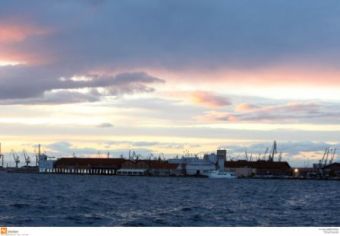Every year when I come back from the Thessaloniki Documentary Film Festival, it is like coming off a drug. You mean, I can't wake up and choose from a hundred thrilling films on any topic that catches my fancy? From a peek at the radical politics behind Peter Gabriel's lyrics (I used to just hum along in the car) to finding out exactly how one recognizes the reincarnation of a Tibetan Master (does the two year old recognize his former incarnation's beaded necklace?), documentaries respond to an intense craving to get the scoop behind the sound bites.
Curious about what autism really is? Fridik Thor Fridriksson's impressive A Mother's Courage: Talking Back to Autism follows an anguished mother in her global search to meet top researchers in the field, so not only do we get insight into the disorder (the precise symptoms), we also learn the latest in cutting edge treatment. A passionate gifted Indian woman -- with the patience of every saint put together -- discovers a way to reach out and teach the children, by devising a Helen Keller like prompt system. Filmed as a suspense story, the documentary keeps spectators intent to see if it really works.
Curious to see what a court trial between a big corporation (Dole) and its employees (Nicaraguan peasants) actually looks like? Participate in the drama in Fredrik Gertten's (sued for defamation) Bananas. Hear the sneaky legal arguments by Dole's CEO; follow a maverick American lawyer in his Ferrari as he fights for the poor: lonely men without families who were made sterile because of Dole's use of a banned pesticide.
In Monica and David, director Alexandra Codina draws us into the growing love story -- and eventual marriage -- of two Downs Syndrome young adults. We wonder, along with the parents, how the newlyweds will make a life in their magnificent new Venice Beach apartment, with bay-windows on the sea. We listen to an impassioned David talking about his new responsibilities for his one and only. We worry how he will handle his new job stamping paper-bags in a store. We peer into their luscious bed as they hug each other, snuggling under the sheets.
We all know about human rights abuse in China. But Director Lixin Fan's film The Last Train Home begins with a shocking shot of Chinese jammed in a train like rubbish in an overstuffed garbage bin, their suitcases packed up to the ceiling -- and people on the platform screaming to be able to get on this "last ride" (which is sold out for months). We learn that every year, 130 million migrant workers in China have just one one-week holiday from the factory, their only chance to see their families back home. En route ourselves, we take the holiday train ride back with one couple, who had left their baby daughter behind years ago, only to see the homecoming culminate in a violent slap against this now teenage daughter's face.
It is heady, as a viewer (and even a well-traveled viewer), to go around the world -- with just a break or two for freshly grilled calamari and Greek white wine -- in a matter of an afternoon. For example, after seeing the factory workers in the Chinese plant in The Last Train , the factory workers in the GM plant in Bogner/Reichert's The Last Truck seem like privileged gods: SUVs, suburban homes, and time to hug and joke with each other. The joy of creativity -- which we see as world-famous Japanese inventor Dr. Nakamats explains his umpteenth invention in his super-cool black-couch-studded Tokyo apartment (in an extra-hip doc by Kaspar Schroder) -- gives way, in the next hour (documentaries are usually dramatically short) to the sadism of power in North Korea.
We also see how countries connect, borrow, are influenced by each other's economies. Three films were on the new phenomenon of Google Babies: how rich Westerners arrange to have their babies made in India. In Zippi Brand Frank's Google Baby, we follow an Israeli guy's suitcase, filled with refrigerated embryos, as it clunks through the customs conveyor belt at a US airport. We watch an impoverished Indian woman give birth to a tiny baby that will be delivered the next week to Connecticut. We sit on the couch with a pretty blue-eyed blonde who has added multiple extensions to her sunny home in Alabama by selling her eggs. She pulls up her midriff to show us where she shoots herself in the stomach for hormones.
Addictive? My last day in Greece, I could not bear to not have the exuberant treat of waking up to this trip around the world -- especially since I knew how hard it would be to get my documentary fix when back in the US of A -- and was ready to pay 250 dollars to change my flight just to have one more afternoon. A friend warned me I was being a bit illogical.
The Thessaloniki Documentary Film Festival: one of the biggest in Europe, in the port city on the Thermaic Gulf, every March for ten days. Open to the public.

